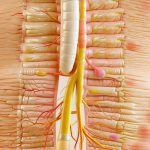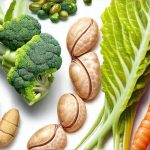Prostate health is a significant concern for many men, particularly as they age. Maintaining optimal prostate function often involves lifestyle adjustments, including dietary choices that can positively influence overall well-being. While there’s no single “magic bullet” food to guarantee prostate health, incorporating nutrient-rich seeds and nuts into your diet can provide valuable support. These tiny powerhouses are packed with essential fatty acids, vitamins, minerals, antioxidants, and plant compounds known to promote cellular health and potentially reduce the risk of prostate issues. Understanding which seeds and nuts offer the most benefit, and how best to integrate them into a balanced eating plan, is crucial for proactive prostate care.
This article will delve into the specific benefits offered by various seeds and nuts, exploring their nutritional profiles and potential mechanisms of action related to prostate health. It’s important to remember that dietary changes are most effective when combined with regular exercise, adequate hydration, and routine check-ups with a healthcare professional. We aim to provide informative insights rather than prescriptive medical advice, empowering you to make informed choices about your diet and overall well-being. Focusing on preventative measures and supporting natural bodily functions is key to long-term prostate health, and seeds and nuts can play an important role in that strategy.
Seeds for Prostate Support: A Deep Dive
Seeds are nutritional dynamos, often underestimated despite their concentrated doses of vital nutrients. Their small size belies a powerful impact on health, offering benefits beyond just prostate support – they contribute to heart health, brain function, and overall vitality. Flaxseeds, pumpkin seeds, and sesame seeds stand out as particularly valuable options for men concerned about prostate wellness. – Flaxseeds are renowned for their high omega-3 fatty acid content, specifically alpha-linolenic acid (ALA). Omega-3s have anti-inflammatory properties, which can be beneficial in mitigating inflammation associated with prostate issues. They also contain lignans, a type of phytoestrogen that may help regulate hormone levels and potentially reduce the risk of certain cancers. For a broader understanding of vital nutrients, explore essential vitamins and minerals for prostate support. – Pumpkin seeds are rich in zinc, an essential mineral for prostate health. Zinc plays a critical role in maintaining healthy testosterone levels and supporting immune function, both vital for prostate well-being. They also contain phytosterols, plant compounds that may help block the production of dihydrotestosterone (DHT), a hormone linked to enlarged prostate (benign prostatic hyperplasia or BPH). You can learn more about pumpkin seeds’ specific benefits for both prostate and bladder health. – Sesame seeds are another excellent source of lignans and antioxidants, offering similar benefits to flaxseeds in terms of hormonal balance and cellular protection. They also provide calcium, magnesium, and iron, contributing to overall health and vitality. Incorporating these seeds into your diet can be as simple as adding them to smoothies, sprinkling them over yogurt or cereal, or using them in baking.
The bioavailability of nutrients from seeds can sometimes be enhanced through specific preparation methods. – Grinding flaxseeds before consumption is crucial for optimal absorption of omega-3 fatty acids and lignans. Whole flaxseeds often pass through the digestive system undigested, limiting their nutritional benefit. – Soaking pumpkin seeds overnight can improve digestibility and increase nutrient uptake. This process also reduces phytate levels, which can inhibit mineral absorption. To support overall health alongside dietary changes, consider building a routine for prostate and bladder harmony. – Toasting sesame seeds lightly enhances their flavor and aroma, making them more appealing to add to various dishes. Remember to consume seeds in moderation as part of a balanced diet. While incredibly beneficial, excessive consumption could lead to digestive discomfort or interactions with certain medications.
Harnessing the Power of Seed Oils
Seed oils are often overlooked but can offer concentrated benefits for prostate health. – Flaxseed oil is an exceptional source of ALA omega-3 fatty acids, delivering a potent dose in liquid form. It’s important to choose cold-pressed flaxseed oil to preserve its nutritional integrity and avoid oxidation. Adding a tablespoon to smoothies or salad dressings can significantly boost your omega-3 intake. – Pumpkin seed oil contains phytosterols and antioxidants that may help reduce inflammation and support prostate function. Some studies suggest it may alleviate symptoms of BPH, but more research is needed. Look for high-quality pumpkin seed oil that’s minimally processed and cold-pressed to retain its beneficial compounds. When considering dietary fats, explore best cooking oils for a prostate-conscious diet. – Sesame seed oil has a unique flavor profile and can be used in cooking or as a finishing oil. It contains lignans and antioxidants similar to sesame seeds, offering comparable benefits for prostate health. When choosing seed oils, always opt for cold-pressed, unrefined varieties that haven’t been exposed to high heat or chemical solvents.
Seed Butter Benefits and Considerations
Seed butters provide a convenient and delicious way to incorporate the nutritional power of seeds into your diet. – Flaxseed butter is gaining popularity as a healthier alternative to nut butters, offering a similar texture and spreadability with added omega-3 benefits. Look for options that are made from ground flaxseeds to maximize absorption. – Pumpkin seed butter provides a unique flavor and delivers zinc, magnesium, and other essential nutrients. It can be enjoyed on toast, mixed into oatmeal, or used as a dip for fruits and vegetables. – Sesame seed butter (tahini) is a staple in Middle Eastern cuisine and offers a creamy texture and rich flavor. It’s a good source of calcium, iron, and lignans. When choosing seed butters, check the ingredient list carefully to avoid added sugars, oils, or preservatives. Opt for organic varieties whenever possible to minimize exposure to pesticides and herbicides.
Integrating Seeds into Your Daily Routine
Making seeds a regular part of your diet doesn’t have to be complicated. – Add ground flaxseeds to your morning smoothie or oatmeal. – Sprinkle pumpkin seeds over salads, yogurt, or cereal. – Use sesame seeds as a topping for stir-fries or baked goods. – Incorporate seed butters into snacks and meals. – Experiment with different seed oils in cooking and salad dressings. Remember that consistency is key. Small changes to your diet can add up over time, leading to significant improvements in prostate health and overall well-being.
Nuts: A Complementary Approach
Nuts offer a diverse range of nutrients that complement the benefits provided by seeds. Walnuts, Brazil nuts, and almonds stand out as particularly supportive for prostate health due to their unique nutritional profiles. – Walnuts are exceptionally rich in omega-3 fatty acids, even surpassing some seed sources. They also contain antioxidants like vitamin E and polyphenols, which protect against cellular damage caused by free radicals. These compounds can help reduce inflammation and support healthy prostate function. – Brazil nuts are a standout source of selenium, an essential mineral that plays a vital role in antioxidant defense mechanisms. Selenium helps protect cells from oxidative stress and may play a role in preventing prostate cancer. However, due to their high selenium content, it’s important to consume them in moderation. To understand more about preventative care, review key risk factors for prostate cancer. – Almonds provide vitamin E, magnesium, and healthy fats, contributing to overall health and potentially supporting prostate wellness. They also contain phytosterols, similar to pumpkin seeds, which may help regulate hormone levels. Incorporating a handful of nuts into your daily diet can be a simple and effective way to boost your nutrient intake and support prostate health.
Nuts offer versatility in how they are consumed – they’re excellent as snacks, added to trail mixes, or incorporated into meals. – Choose raw or dry-roasted nuts over salted or sugar-coated varieties. – Portion control is important, as nuts are calorie-dense. A small handful (approximately 1 ounce) is a reasonable serving size. – Consider nut butters as a convenient alternative for spreading on toast or adding to smoothies. Just be mindful of added sugars and oils in commercial brands. The combination of seeds and nuts provides a synergistic effect, offering a comprehensive range of nutrients that support prostate health from multiple angles.
It’s crucial to remember that dietary changes are just one component of proactive prostate care. Regular exercise, adequate hydration, stress management, and routine check-ups with a healthcare professional are all essential for maintaining optimal prostate function. This article is intended to provide informative insights rather than prescriptive medical advice. Always consult with your doctor or a registered dietitian before making significant changes to your diet or health regimen.





















